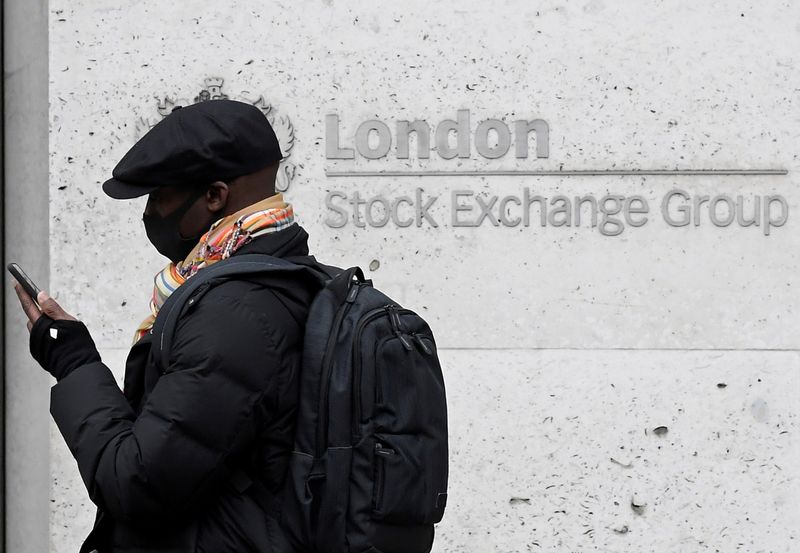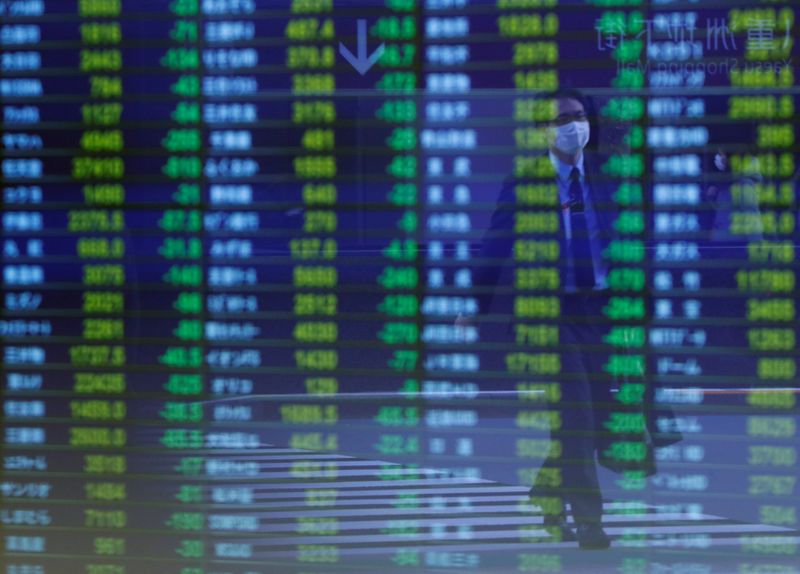By Dhara Ranasinghe
LONDON (Reuters) - World stocks took a hit on Friday as China moved to impose a new security law on Hong Kong after last year's pro-democracy unrest, further straining fast-deteriorating U.S.-China ties.
These tensions plus news that China has dropped its annual growth target for the first time added to concern about the fallout from the COVID-19 pandemic, knocking oil prices down more than 5% (LCOc1) and boosting demand for safe-havens such as U.S. government bonds (US10YT=RR).
European shares opened broadly lower (STOXX), with blue-chip indexes in London (FTSE), Paris (FCHI) and Frankfurt (GDAXI) all down more than 1.5%.
That followed a sharp selloff in Asia after China said it would impose new national security legislation on Hong Kong -- sparking a warning from U.S. President Donald Trump that Washington would react "very strongly" against an attempt to gain more control over the former British colony.
Hong Kong's Hang Seng index (HSI) slid more than 5% to a seven-week low, MSCI's broadest index of Asia-Pacific shares outside Japan (MIAPJ0000PUS) fell 2.7%.
Japan's Nikkei (N225) slipped 0.8%, while U.S. stock futures (ESc1) (1YMC1) fell almost 1% -- pointing to a weak open for Wall Street.
U.S./China tensions have risen in the past few weeks, with Washington ramping up criticism of China over the origins of the coronavirus pandemic.
Still, MSCI's world stock index (MIWD00000PUS), is up around 2.5% this week as central bank stimulus in the face of the coronavirus shock underpins investor sentiment.
"Overall it’s fascinating to see that markets are shaking off the very bad news on the future U.S./China relationship much more now in the face of a global pandemic than it did last year when the tensions were fraught," said Deutsche Bank (DE:DBKGn) strategist Jim Reid.
"The relationship feels more in terminal decline now than it did 6-12 months ago. Maybe the answer to this puzzle lies in the central bank liquidity surge."
Reid noted that it took more than 3-1/2 years between September 2008 and 2012 to "achieve" the $4.5 trillion cumulative expansion in G10 central bank balance sheet assets seen over the last 12 weeks.
Japan's central bank on Friday unveiled a lending programme to channel nearly $280 billion to small businesses hit by the coronavirus. India slashed interest rates for a second time this year.
While expected by markets, the news that China has not set a an economic growth target for the first time since the government began publishing such goals in 1990, added to a sense that the coronavirus fallout is likely to be protracted.
Brent crude (LCOc1) fell more than 5% to $34.04 a barrel, West Texas Intermediate (WTI) crude (CLc1) dropped 6.8% to $31.63. [O/R]
Safe-haven U.S. Treasury yields fell around 4 basis points (US10YT=RR) and the dollar rallied.
In offshore markets, the Chinese yuan dipped to 7.15 per dollar

"With this latest round of U.S.-China tensions and the risk that any new wave of weaker risk appetite triggers dollar strength, the focus on the important dollar/yuan exchange rate could quickly intensify," said Saxo Bank chief economist and CIO Steen Jakobsen. "Particularly if the 7.20 area comes under pressure, which would point to China allowing its currency to devalue."
